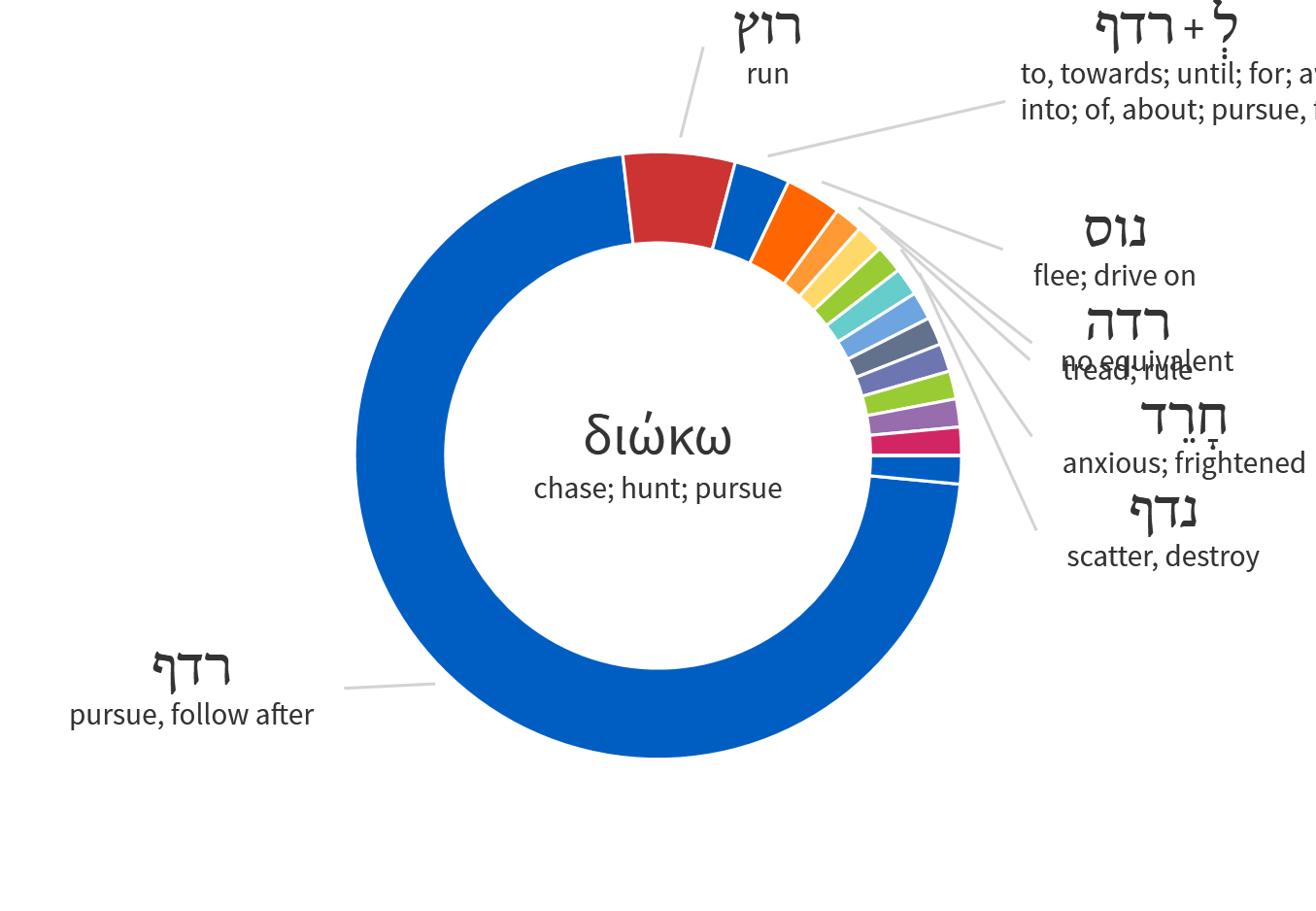The Greek text of the Sermon on the Mount prominently features two forms of the verb διώκω, which dates back to Homer and originally meant to hunt or drive animals. This word later came to have the additional meanings of taking legal action against someone and of persecuting someone. Taken at face value, this seems anachronistic, since neither Jesus nor his followers have yet had legal action taken against them, and although the Jews have been oppressed, they have not yet been persecuted as in the sense of the martyrs of a later generation.
In the Aramaic original, what verb would likely have been used, and what are its connotations? Web searches suggest Hebrew dachaq, which is more like "to oppress, afflict," and in its Aramaic version would seem to make more sense for the putative audience of this sermon. Is this the most likely origin of the translated word? Outside of the Jewish and Christian scriptures, is there any evidence that in koine διώκω had already acquired the meaning of "persecute" or "oppress?" (Wiktionary lists as examples only two from the NT.) Are there likely parallels in the Hebrew scriptures that are being harkened back to with this word?
There is also an Aramaic word transliterated as D'eAT,RD,eP,O: https://www.atour.com/cgi-bin/dictionary.cgi?string=persecute&Search_Field=Meaning. I'm not sophisticated enough to know whether this is cognate with Hebrew dachaq.
This reconstruction/back-translation into Aramaic seems to use a different verb: https://johnbethwe.wordpress.com/2015/01/11/sermon-on-the-mount-in-aramaic/
"toobayhoon li-eyleena da ta-radafoo metool kenoota da deel’hoon hay malkoota da $maya .
"Good to those of persacuted because rightousness within, (they) of own, it is kingdom of heavens"
I don't know enough to pick out the relevant verb or tell whether it's a form of the others previously mentioned.
